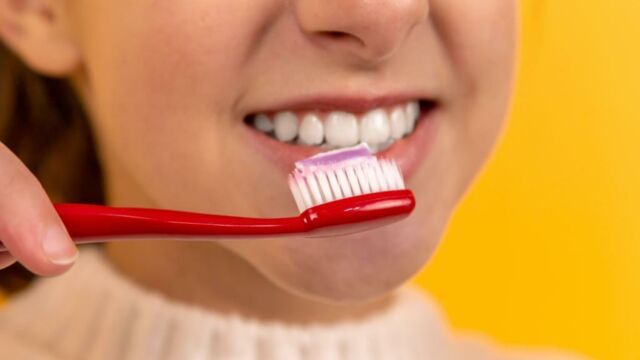Dental health recommendations have changed significantly in recent years, but dentists agree on several arguments. Brushing your teeth regularly is essential and you should see your dentist at least once a year. However, when we brush our teeth, some of us forget to do something that is considered very important.
Discover our latest podcast
Dentists' recommendations to avoid serious health problems
When you were a child, you were probably told to brush your teeth three times a day, once after each meal. But according to several dentists, brushing your teeth twice a day is enough.
Indeed, in an updated prevention sheet, the UFSBD, a French dentists' union, summarizes its recommendations:
- 2 two-minute brushings (morning and evening)
- the use of a fluoridated toothpaste
- a minimum of one visit per year to the dentist
- a varied and balanced diet
But another point is also addressed, and it is not to be overlooked.
regularly flossing will make you feel like you girlboss leveled up
— aspen #YOLO era (@badtriptych) March 27, 2023
Read more:Dental hygiene: Here's the ultimate guide to the freshest breath
Flossing every night
Do you floss after brushing your teeth? If not, the UFSBD recommends that you do so, at least once after dinner. A member of the union, Dr. Wamaere, says:
Dental floss is so thin that it can fit into the smallest spaces and is suitable for most people, and there is a body of evidence that it reduces gingivitis. Combined with brushing, it would therefore be even more effective.
#ElimikaWikiendi
— Mathew Mseke (@Afyayakinywa) March 11, 2023
Dental flossing
Effective tooth brushing is not enough to remove all the food debris hence dental floss is required. pic.twitter.com/Rizt1PtP59
A recommendation to be taken seriously, because poor dental hygiene can be at the heart of various serious diseases, in particular cardiac diseases, as the UFSBD explains:
An untreated cavity just like a diseased gum are real doors of entry for bacteria or toxins. Bacteria present in the mouth can migrate into the general circulation and come to graft on your heart with a risk of endocarditis.
This article has been translated from Gentside FR.
Read more:Hygiene: Brushing your teeth in the shower is not good for your health, here's why
Sources used:
UFSBD: Maladie cardiaque et santé bucco-dentaire
NHS: Why should I use dental floss?
NPR: 'Do I really need to floss?' and other common questions about dental care















